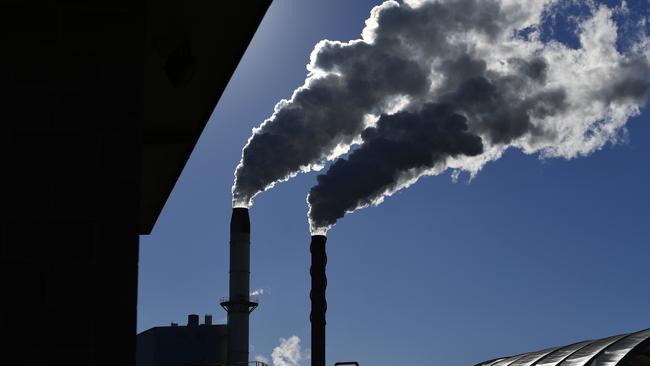Firms to track and tell all on emissions
Big companies will be forced to track and disclose their carbon emissions and those of their clients and suppliers under a mandatory climate disclosure regime due to start in mid-2024.

Big companies will be forced to track and disclose their carbon emissions – and those of their clients and suppliers – under a mandatory climate disclosure regime due to start in mid-2024.
In a joint statement accompanying the release of Treasury’s consultation paper on the proposed rules, Jim Chalmers said this was “the next step in delivering the government’s commitment to ensuring Australia’s large business and financial institutions provide more information and greater transparency on how they are responding to climate change and contributing to the net-zero transformation”.
Australia’s largest listed and unlisted firms will need to meet the requirements by July 2024, with smaller businesses to follow three years later. The rules will broadly align with international climate disclosure standards.
Companies will be given a three-year grace period during which their forward-looking statements on emissions and scope 3 estimates – which include all other greenhouse gas emissions from suppliers and clients – will not be subject to civil penalties.
“Sustainable finance is a critical part of our climate agenda and with this action, financial markets will be much better placed to make the long-term investments needed to meet our targets,” the Treasurer said.
Business Council chief executive Jennifer Westacott said “we welcome the government’s progress on developing a new climate disclosure standard for companies and their commitment to ongoing consultations”.
But she also urged the government to give companies enough time to get to grips with the requirements, and warned of duplication and “red tape”.
“While we understand the importance of moving forward in this area, we urge the government not to put speed ahead of getting this right,” she said.
“We need to build on the existing international standards and ensure there is one reporting framework. Unnecessary red tape will make it harder for businesses to transition to net zero.’’
Zenith Investment Partners head of responsible investment Dugald Higgins said the disclosure code was a positive step and would keep Australia in line with international standards, but the requirements had the potential to be “very difficult and very expensive”, particularly in relation to reporting scope 3 emissions.
“It may look endlessly daunting, but the only reason this stuff is expensive and super hard to do now is because it’s new,” he said. “As people report and the data comes in it will get easier. So as long as there is an appropriate phase-in period, that should lessen the burden.”
The Investor Group on Climate Change backed the proposed rules, saying they would “provide many of the elements investors will need to efficiently allocate capital in the transition to a resilient, net-zero economy”.
But the IGCC criticised the three-year grace period for reporting on scope 3 emissions.
“Although investors recognise that scope 3 emissions data may not be reliable or feasible in 2024-5, the first year of the reporting regime, the proposed rules would allow the final group of companies to still omit scope 3 emissions reporting as late as 2027,” it said. “If reliable data exists, companies should be required to incorporate it, noting if and when it does not exist.”




To join the conversation, please log in. Don't have an account? Register
Join the conversation, you are commenting as Logout